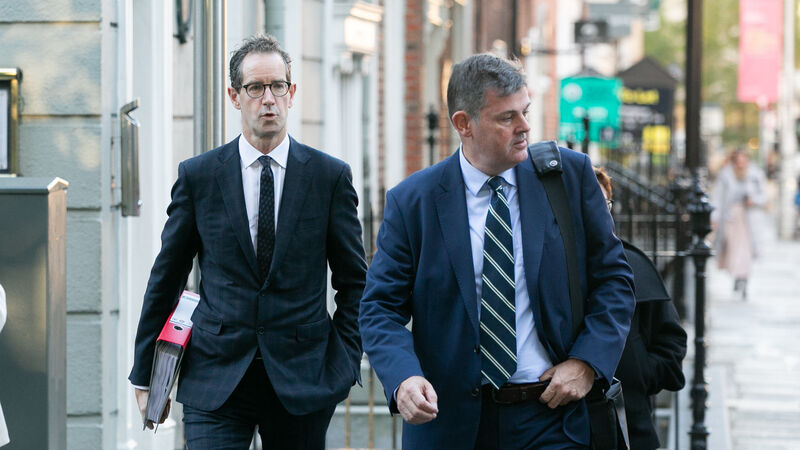PAC to compel RTÉ to release key documents surrounding recent scandals

RTÉ interim deputy director-general Adrian Lynch and director general Kevin Bakhurst
Key documents which RTÉ has refused to release regarding the scandals enveloping it over the past four months are to be compelled for release by the Public Accounts Committee (PAC).
Chair Brian Stanley and several committee members told RTÉ director general Kevin Bakhurst at a tense PAC appearance on Thursday that such compulsion would be invoked, notably with regard to a note of a Teams meeting involving former DG Dee Forbes dating from May 7 2020.













